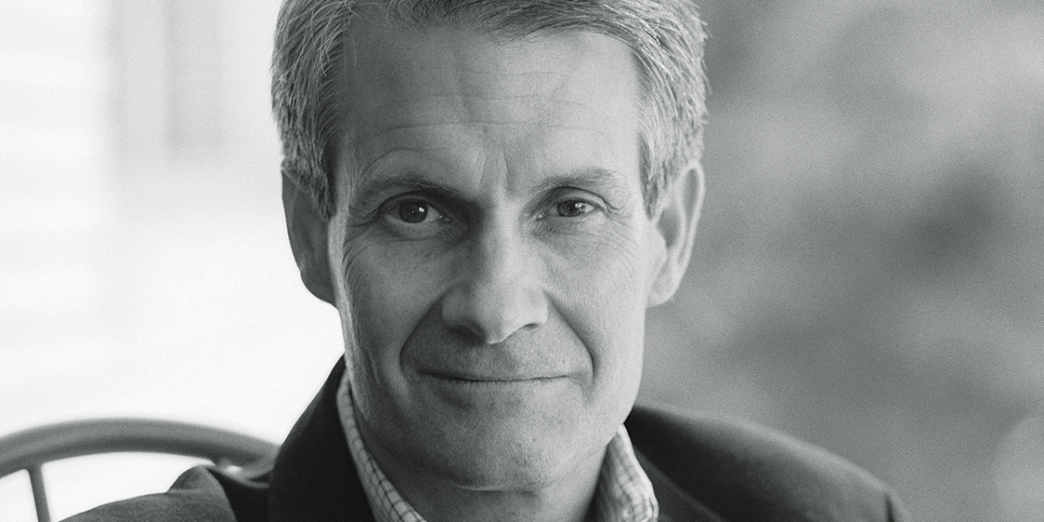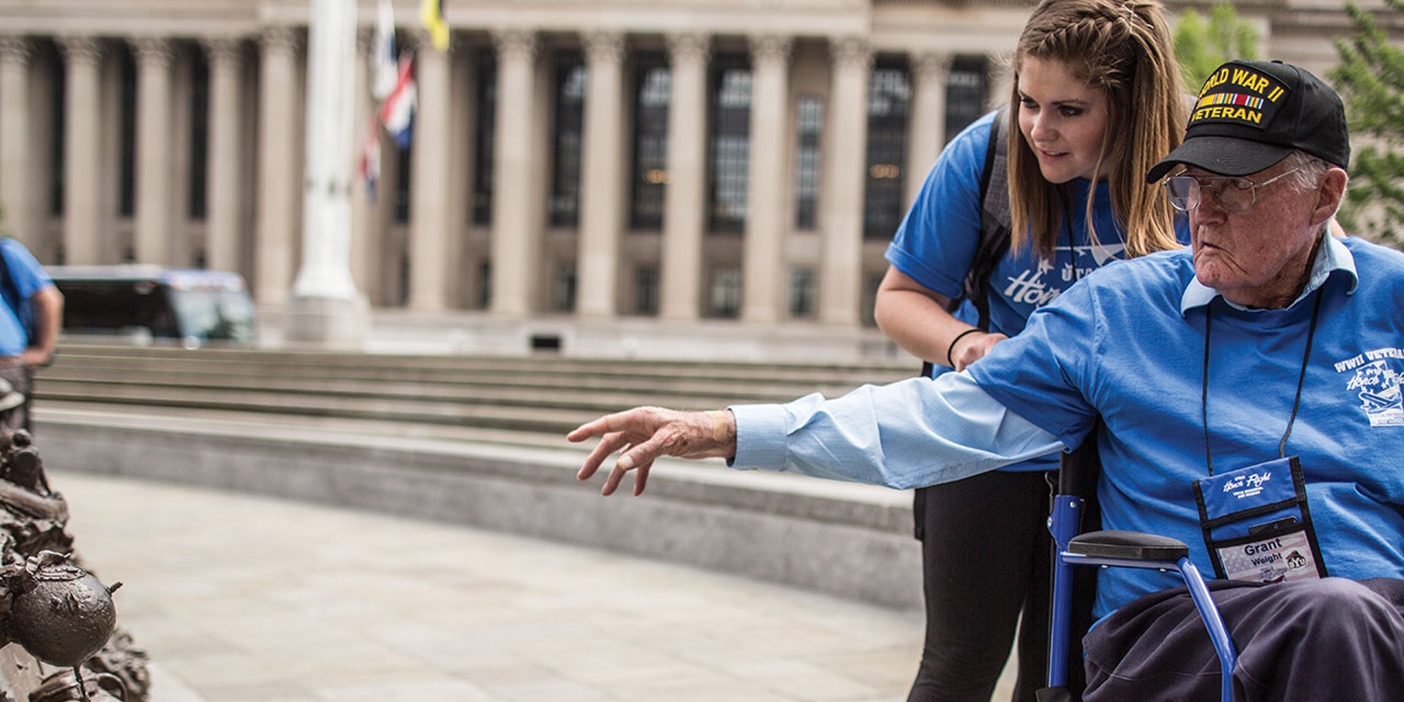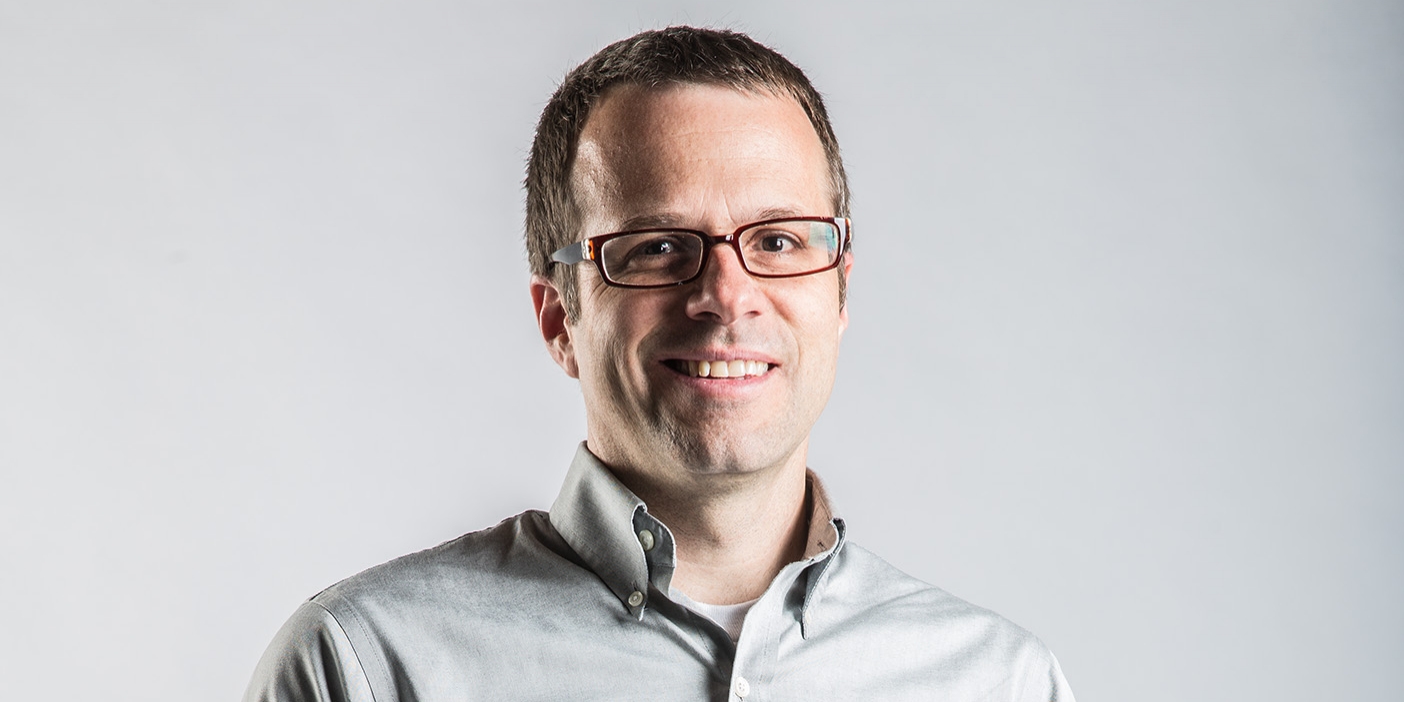Red, White, and BYU
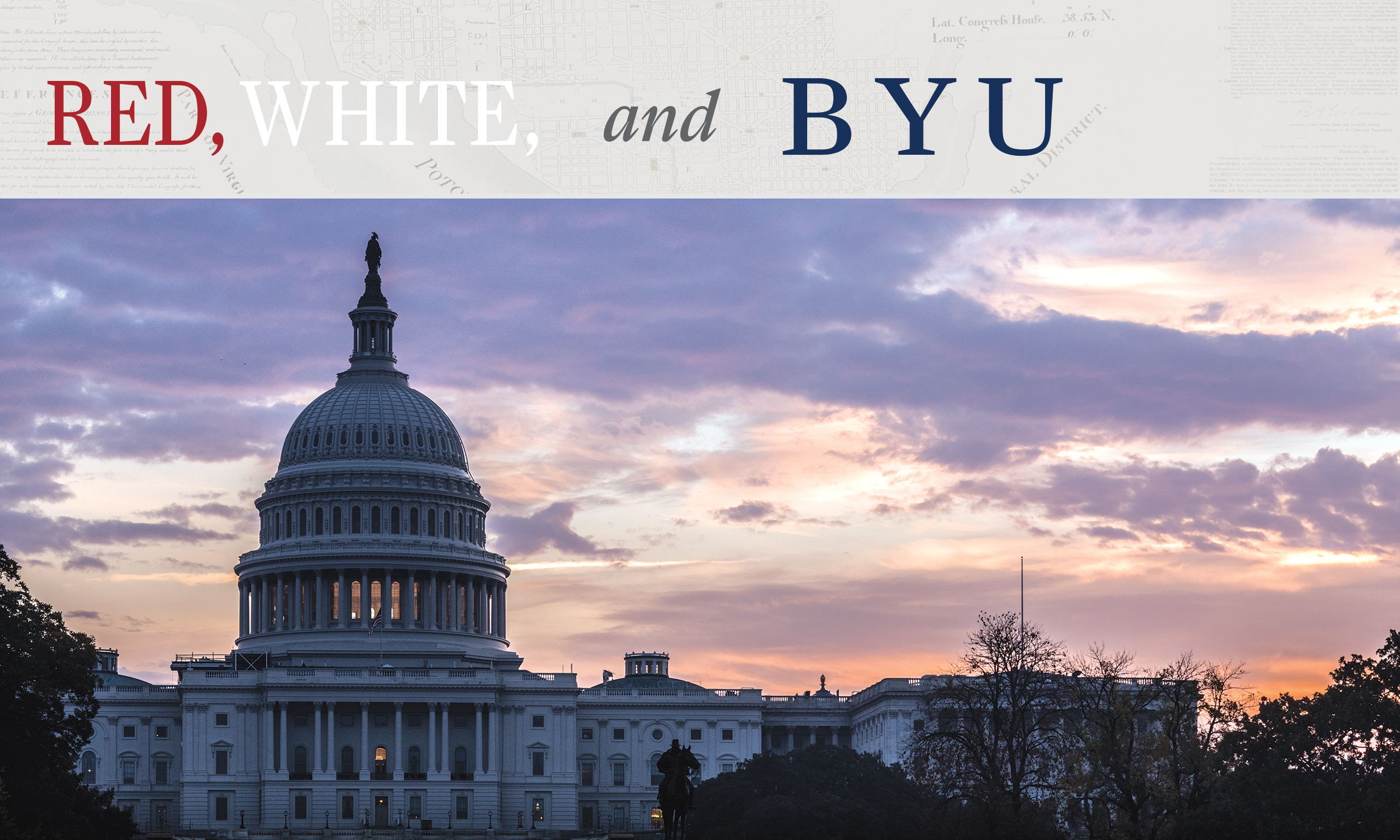
Drawn by the allure of D.C., BYU students and alumni work in the spotlight and behind the scenes to help build a more perfect union. Meet six of them.
By Andrew T. Bay (BA ’91, MA ’94) in the Winter 2017 Issue
Photography by Bradley H. Slade (BA ’94)
Economist D. Nathan Sheets (BA ’89) calls it “electricity.” Judge Thomas B. Griffith (BA ’78) calls it “a ferment.” It’s the humming vibe of innumerable interests converging in one place, as passionate representatives advocate positions, influence decision makers, negotiate with rivals, build alliances, craft legislation, and form and reform a nation and the world. In Washington, D.C., political, business, and personal worlds intertwine in a spirited national nexus, and BYU alumni, though a tiny minority, have an outsized influence at nearly every juncture.
D.C.’s connections are built into the very pavement of the city—which was laid out by French architect Pierre L’Enfant, who combined east-west lettered streets, north-south numbered streets, and broad diagonal avenues that connected in large circles. Those begat social circles and political ties. Made and remade by politicians and government employees and every interest and nation under the sun, those circles radiated out across the world, and through time.
The pull of this city of ambition and opportunity has drawn thousands of BYU students and alumni over the years. Some, like Senator Jeffry L. Flake (BA ’86; MA ’87) of Arizona, attended the BYU Washington Seminar program and felt the energy and promise of politics. Others came to make their mark in business, law, or technology. Certain government roles, like diplomacy, law enforcement, and the military, have attracted BYU students in droves.
And they come and stay because of their love of country and reverence for its constitution, institutions, and monuments—from the Lincoln Memorial to the Arlington National Cemetery—silent counterpoints to the city’s bustle and to its brash, constituent-conscious voices. Alumni see the nation’s future as well as its past enshrined in the quietude and gravitas of those stone symbols.
Like those steady monuments, most of Washington’s workers continue on through political reversals and social upheavals. As fortunes change, the connections also shift—politicos and bureaucrats morph into policy wonks, attorneys, and lobbyists, and vice versa. Appointees move in and move out. New interns learn the ropes.
Amid it all are the thousands of BYU alumni and students who help keep the nation running. Here we introduce six of the 6,000 who currently call the Washington, D.C., metro area home.
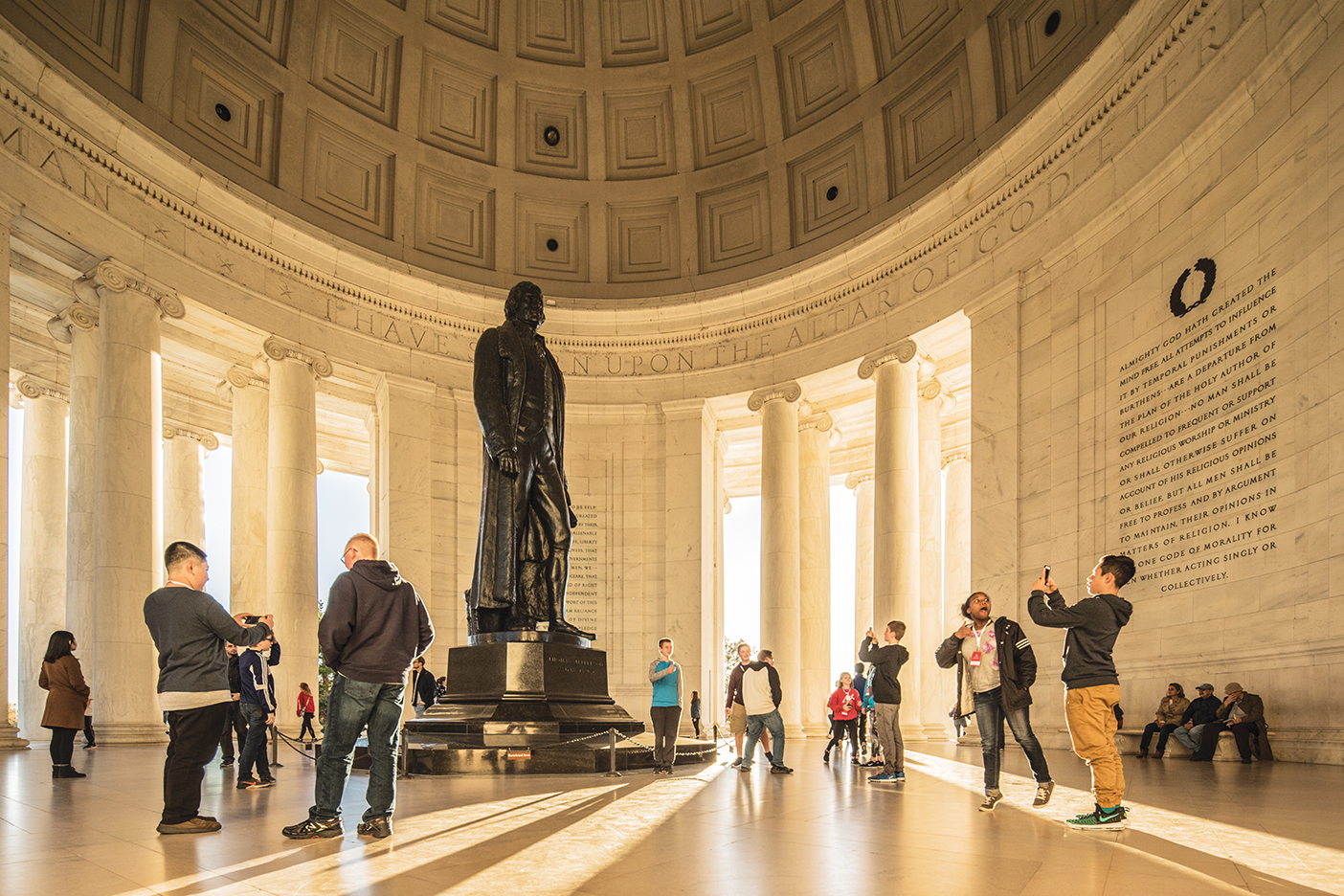
The Bigger Picture
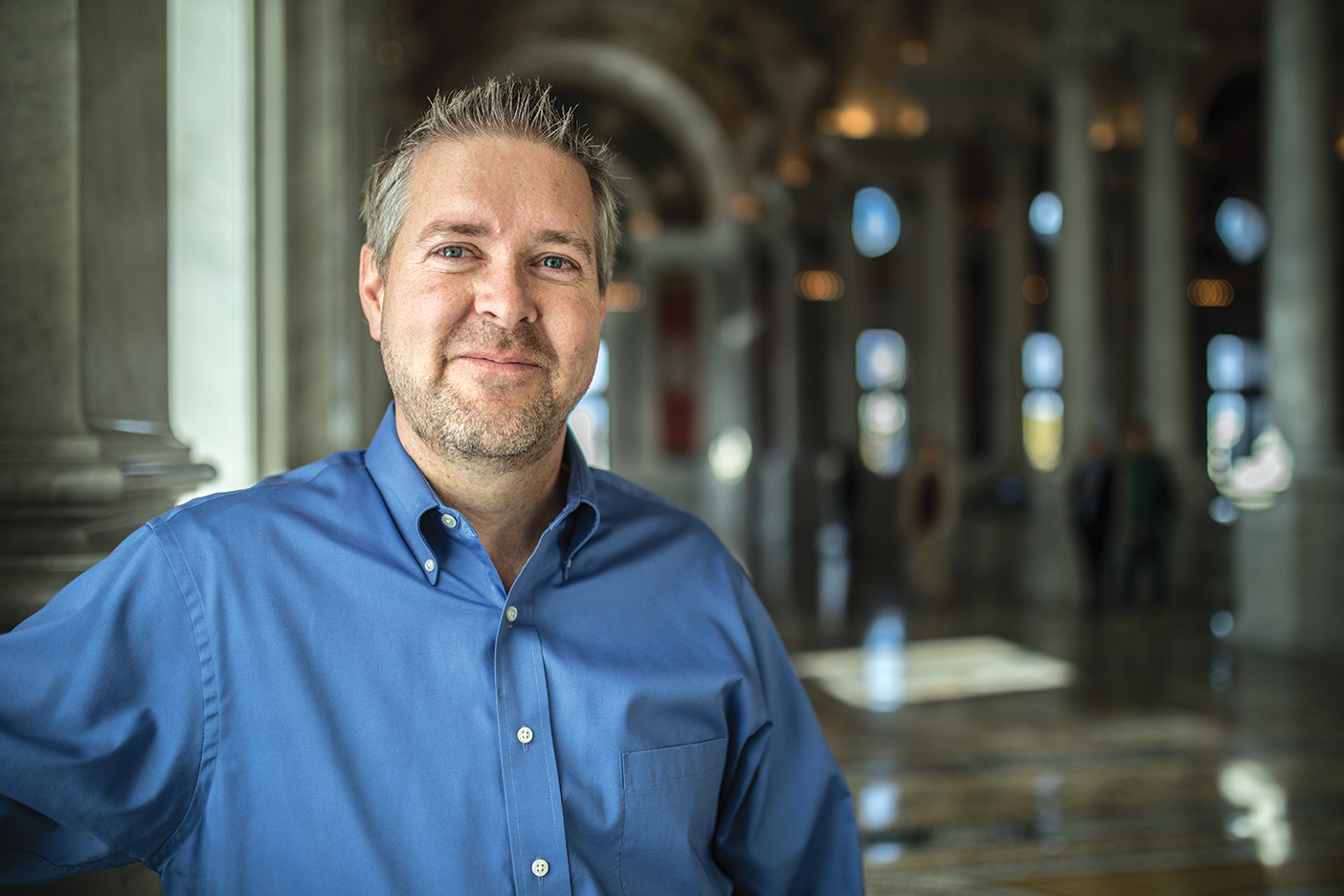
Paul B. Allen (BA ’90) graduated from BYU in Russian and founded Infobases, Ancestry.com, and other Internet businesses. He now works in Washington, D.C., for the polling and strategy company Gallup, helping individuals and organizations identify and develop their strengths.
Silicon Valley vs. the Beltway
“I thrive here. I mean, Silicon Valley is unbelievable. But here, every type of industry is represented. Every country in the world is represented. . . . You just get a bigger picture of the world.”
The Country’s Hidden Leaders
“For 100 years U.S. industries have had associations, all sharing knowledge freely with each other at their annual conferences. The people leading these do a little bit of political lobbying, but there is a lot of industry sharing and mentoring. This is a big part of why America is such a great country. It’s the associations—there are 25,000 of them.
“What I found most striking is that the people that are in these movements or running these industries are just everyday, normal people. They are humble and open—not unapproachable or above others. The greatest leaders in the country are out of the limelight.”
A Favorite Place
“The Library of Congress—I love spending time there. I love its architecture. It has 120 million items, or some crazy thing. The exhibits are incredible. The reading room and the reference shelves are just amazing. It’s the cathedral of knowledge.”
A Surplus of Suits
“Washington, D.C., is way too formal. There are just way too many suits and ties. There’s more hierarchy, and status seems to matter too much.”
Newt on Speed Dial
“I had half a dozen [consulting] meetings with Newt Gingrich, including a couple with his wife, Callista. And then one day he accidentally pocket-dialed me. I get cards from him now.”
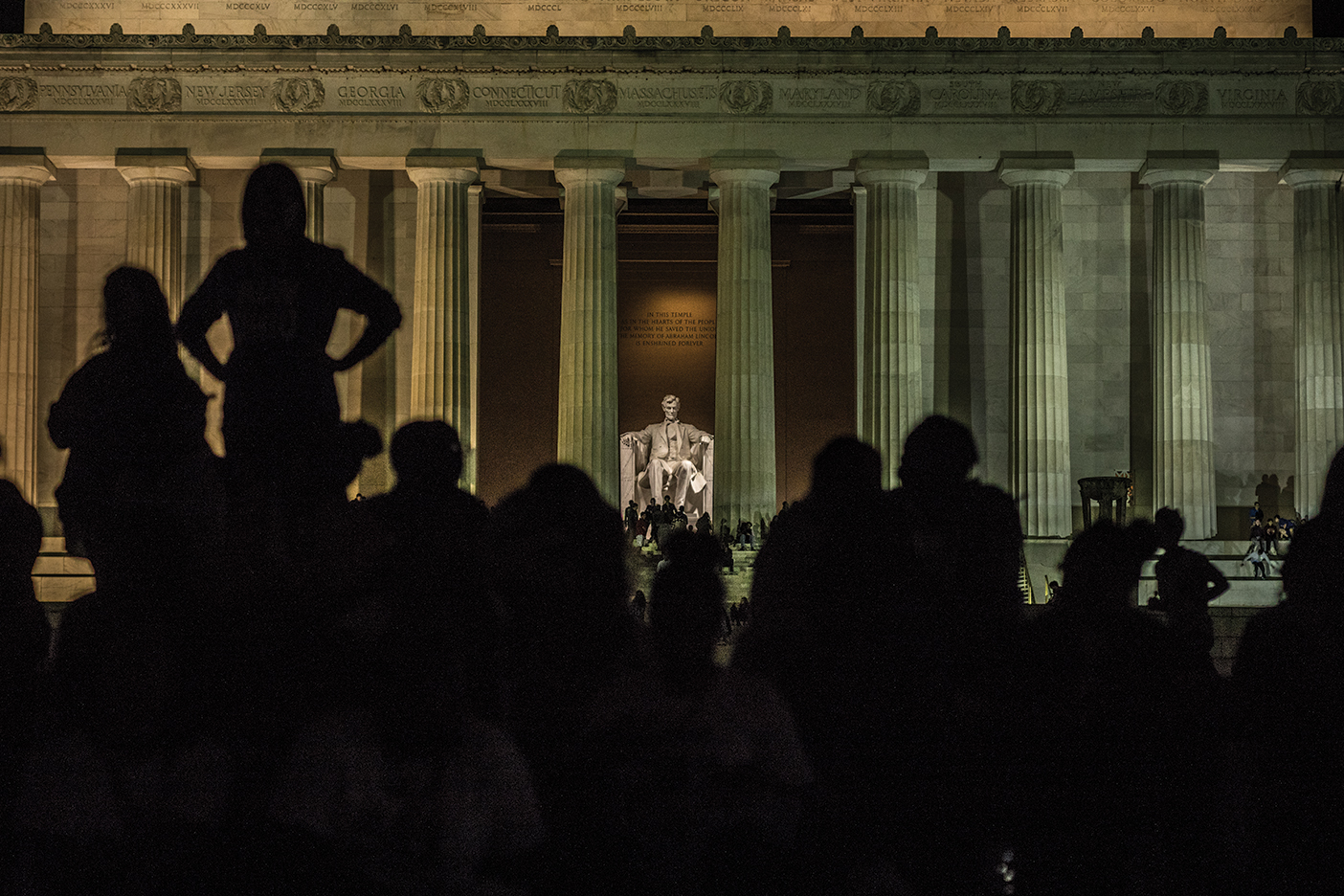
People, Money, and Policy
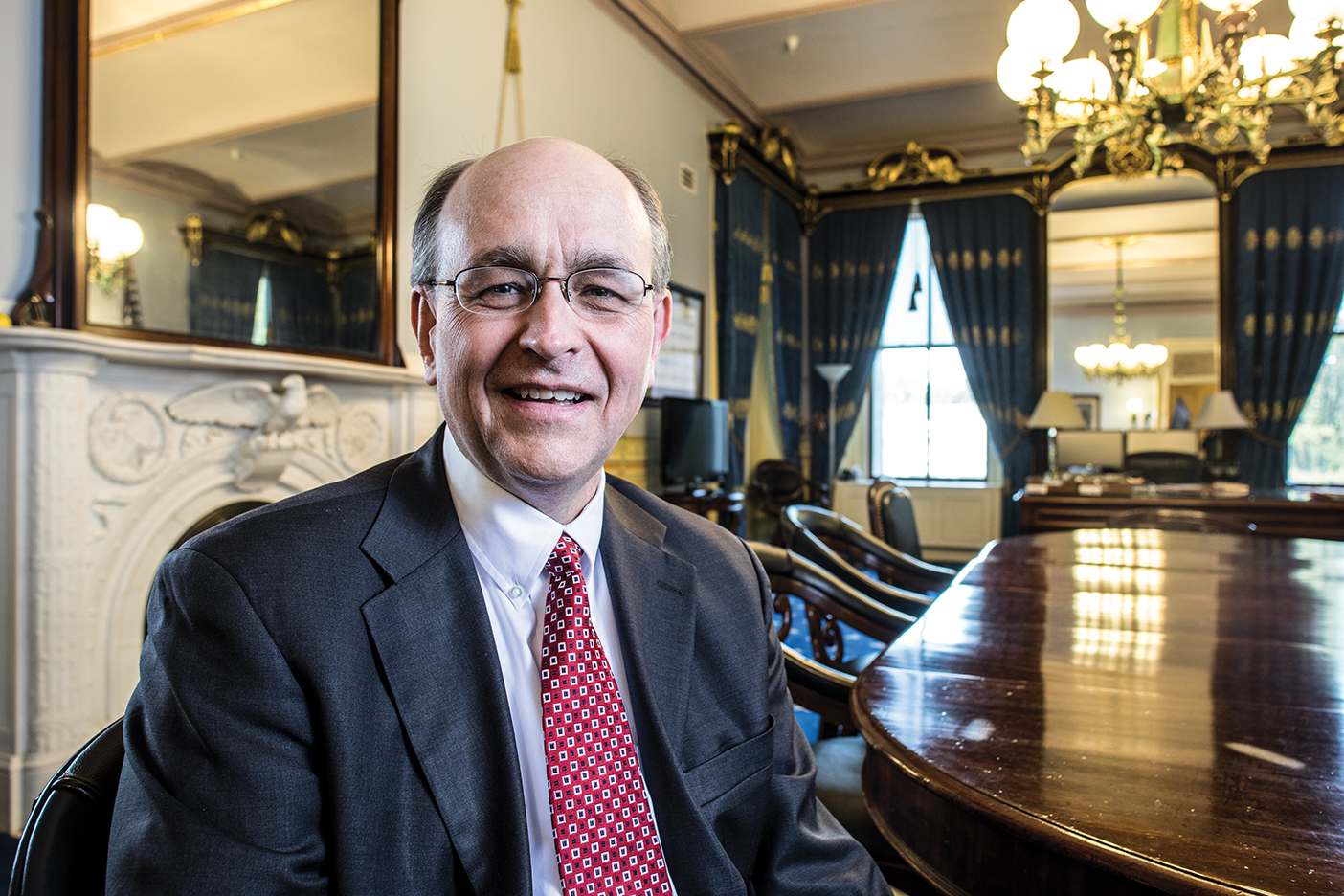
D. Nathan Sheets (BA ’89) graduated from BYU in economics. After completing a PhD in economics at MIT, he worked at the Federal Reserve for 18 years and at Citigroup for 3 before joining the U.S. Treasury Department.
Courage to Make an Unpopular Decision
“I saw real courage during the 2008 financial crisis when I worked at the Federal Reserve. I saw people making very hard decisions based on the evidence that was before them, decisions that were necessary to ensure the ongoing functioning of our economy and financial system.”
“I saw real courage.” —Nathan Sheets
A Seat at the Table
“When you are . . . with the secretary of the Treasury, making significant decisions, or sitting across the table from the chairman of the Federal Reserve when they’re considering monetary policy, setting interest rates, there’s a real electricity to it. You know that what you’re doing has broader importance.”
The Power of Relationships
“I’ve learned about the power of relationships. You build relationships with people, and then if you need something, they’re happy to do it. If they need something, you’re happy to help them out. But too much of Washington is built on a transactional model, where I’ll do something for you today only if you’re willing to do something for me today. That becomes a very intensive negotiation.
“I believe the relationship model is the more durable, effective, and productive way to approach interacting with people. It’s based on the presumption of, over the long term, having common interests—on being in this together.”
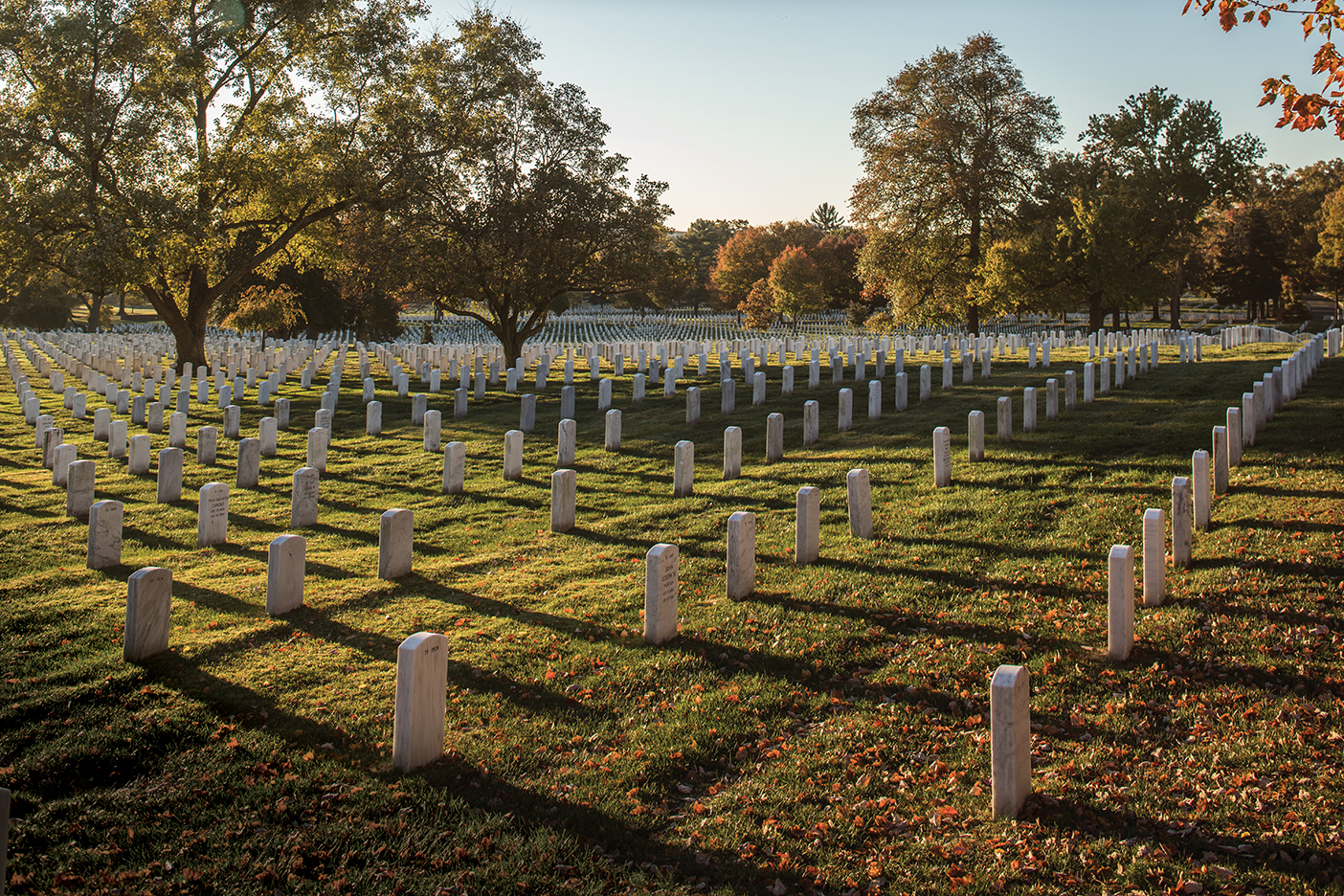
From Intern to Internationalist
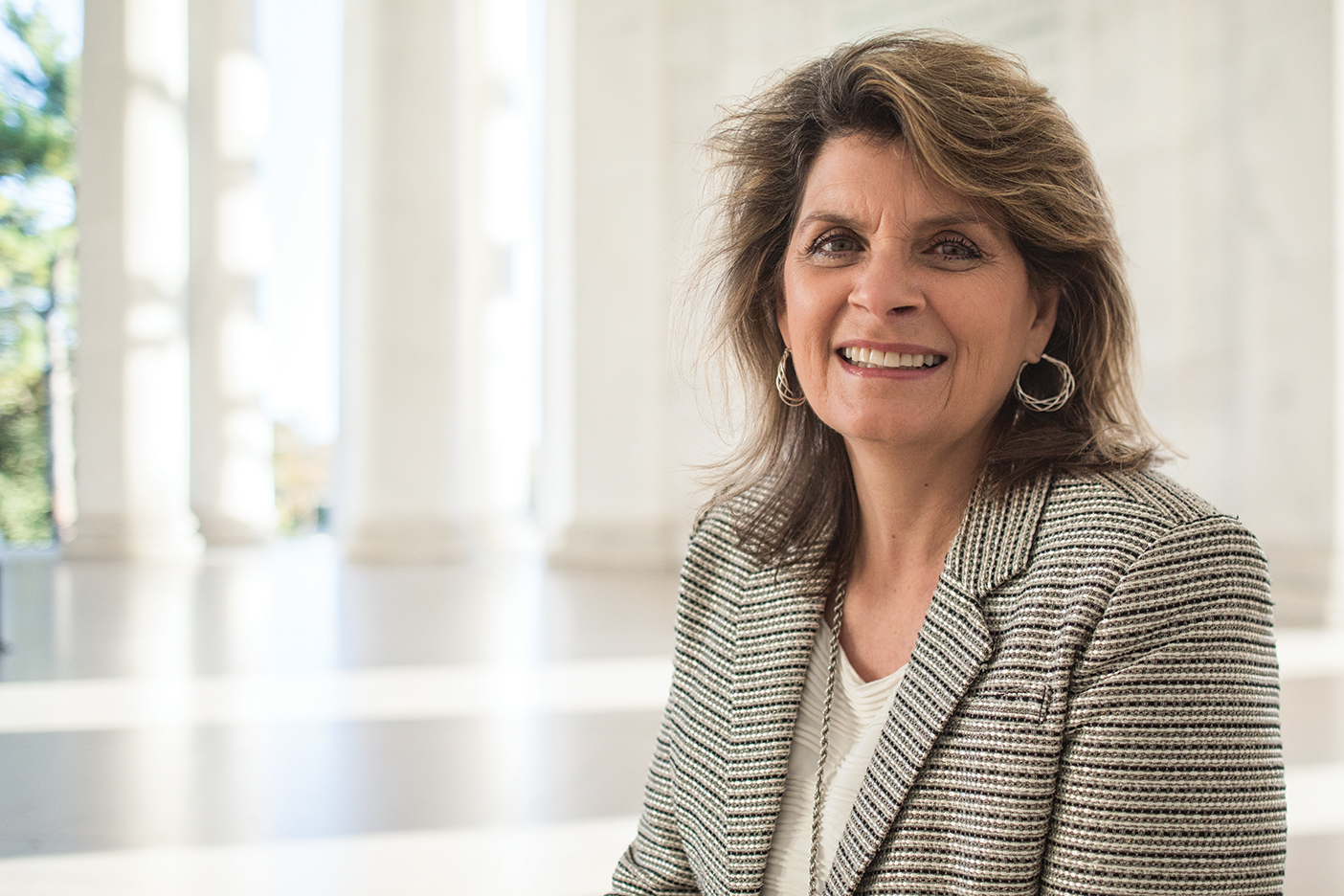
Karen Bybee (BA ’81) graduated from BYU in communications. She worked in two congressional offices before helping organize international sporting events—including eight Olympic Games and four FIFA World Cups.
Expanding Her Circle
“I was so grateful for my BYU experience, but I was ready to move. I wanted to experience the world in a new environment. Washington offered exciting professional opportunities as well as a strong single-adult community. I found that the area attracted people interested in broadening their horizons.”
“[D.C.] attracted people interested in broadening their horizons.” —Karen Bybee
Foot in the Door
“The Washington Seminar provided a wonderful opportunity for a recent grad like me to get my foot in the door. I worked as an intern for my congressman from Kentucky, then was offered a position as his assistant press secretary. After three years in the congressman’s office, I accepted a position to work with Utah senator Orrin G. Hatch (BS ‘59).”
Unexpected Opportunities
“You never know how experiences you have or people you meet might open up future opportunities. For instance, it was my mission to Italy that opened doors to my 25-plus-year career in international sports. Working on Capitol Hill provided a foundation, but it was my mission—along with a mentor—that made the difference. I’m a big believer in taking advantage of opportunities that arise—even when they don’t make sense for a traditional career path.”
Who’s Got the Power?
“There are people in Washington who wield tremendous power, but you don’t see it and you wouldn’t necessarily know it. Their boss may have the name recognition, but it is often the people behind the scenes in D.C. who are the real key players. They’re the decision makers and the gatekeepers.”
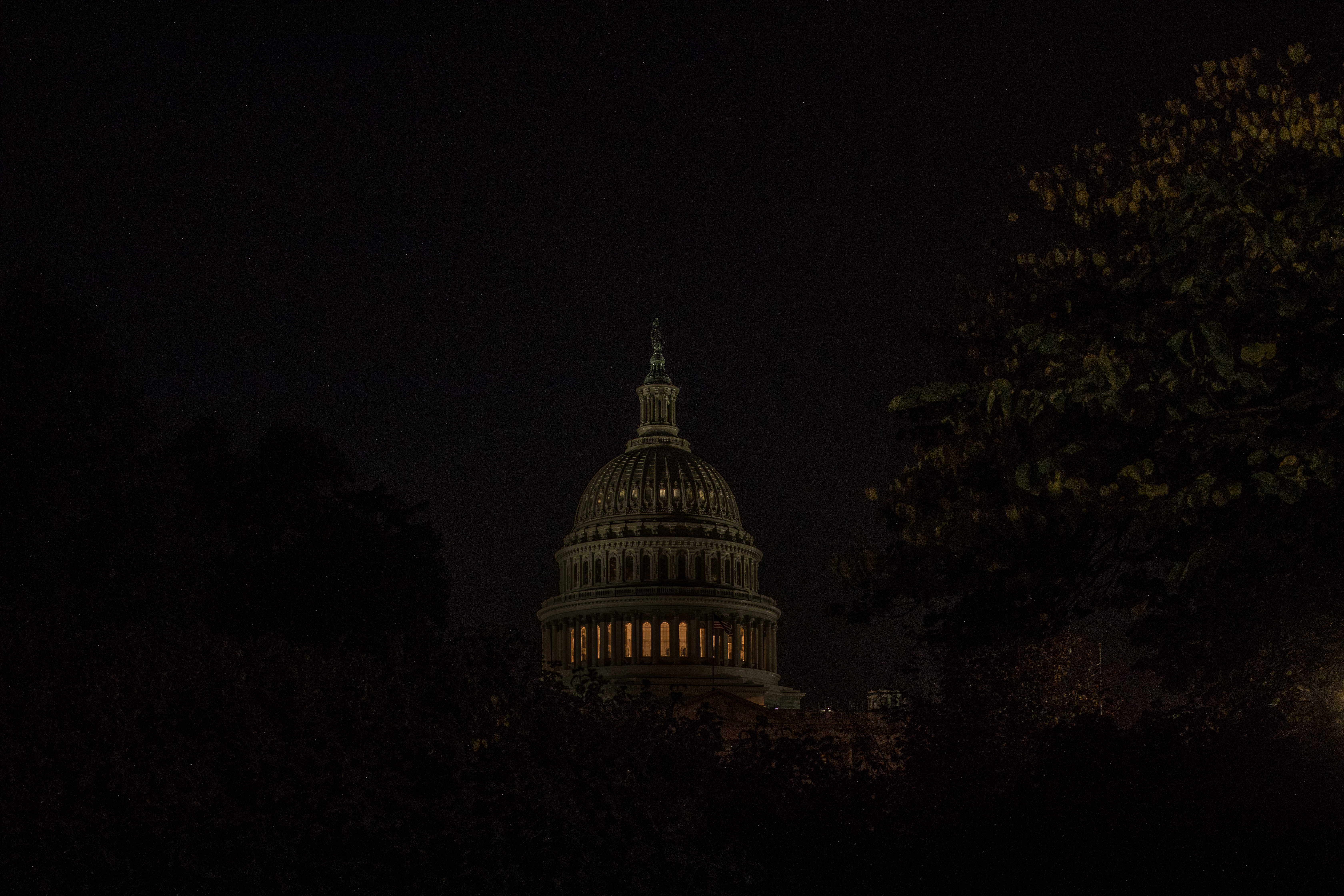
Global Justice
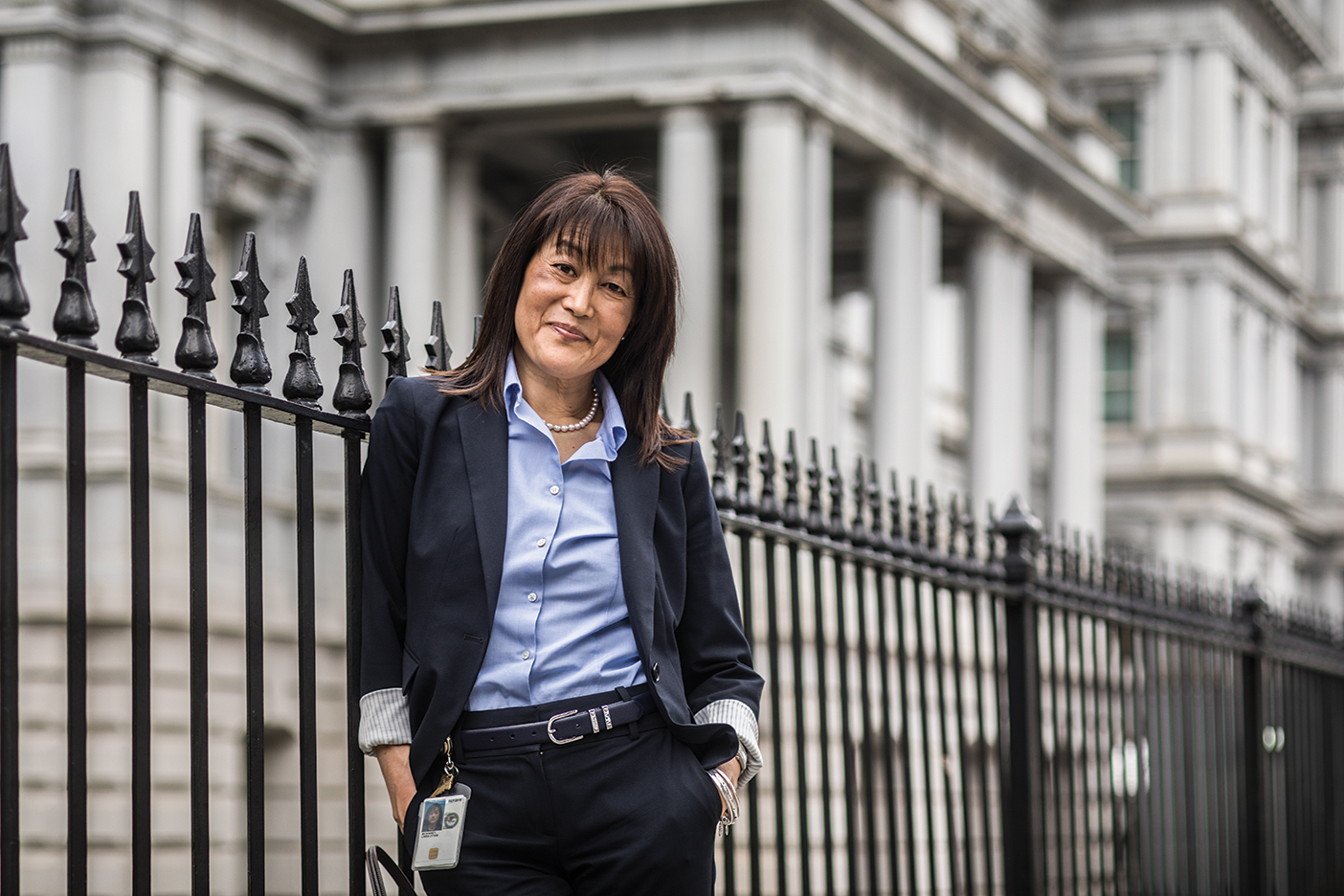
Linda Otani McKinney (BA ’81) graduated from BYU in humanities and Japanese. She has worked in D.C. as a Department of Justice lawyer for 26 years.
Public Servants
“The wonderful people that I work with at the Department of Justice, these really bright attorneys, are here because they want to do the right thing.”
Thumbs Up, Thumbs Down
“Things I like about D.C.: cherry blossoms at the tidal basin in the spring; the national Christmas Tree in December; the height restriction for buildings, making D.C. more open and airy; the cultural diversity; these beautiful monuments all over—you walk around and feel proud to be an American.
“Something I hate: the congestion. Every year I see the traffic getting worse, my commute into the city is longer—just frustrating. I take the bus and the metro. . . . If they’ve shut down your metro line to fix the track, then you have to take a bus or drive. But driving is crazy, too.”
“You walk around and feel proud to be an American.” —Linda McKinney
Will Work Nights and Holidays
“I love what I do; I don’t always love the quantity in which I have to do it or the speed with which I’m expected to do it.
“Interpol will call me in the middle of the night or on the weekends, because a fugitive was arrested overseas. There have been a few Thanksgivings where I get a call from the Justice Command Center because Interpol has just informed them about an arrest in, say, Copenhagen. You know, in Copenhagen it’s not Thanksgiving. So I’m trying to tell them, ‘Hey, could you hang on one second, because I’m trying to put this turkey in the oven!’”
A Vibrant Democracy
“There are often protesters near our offices, protesting any number of issues. I like to see them when I walk by. I like to see people exercising their First-Amendment rights—that’s what makes the United States such a great country.”
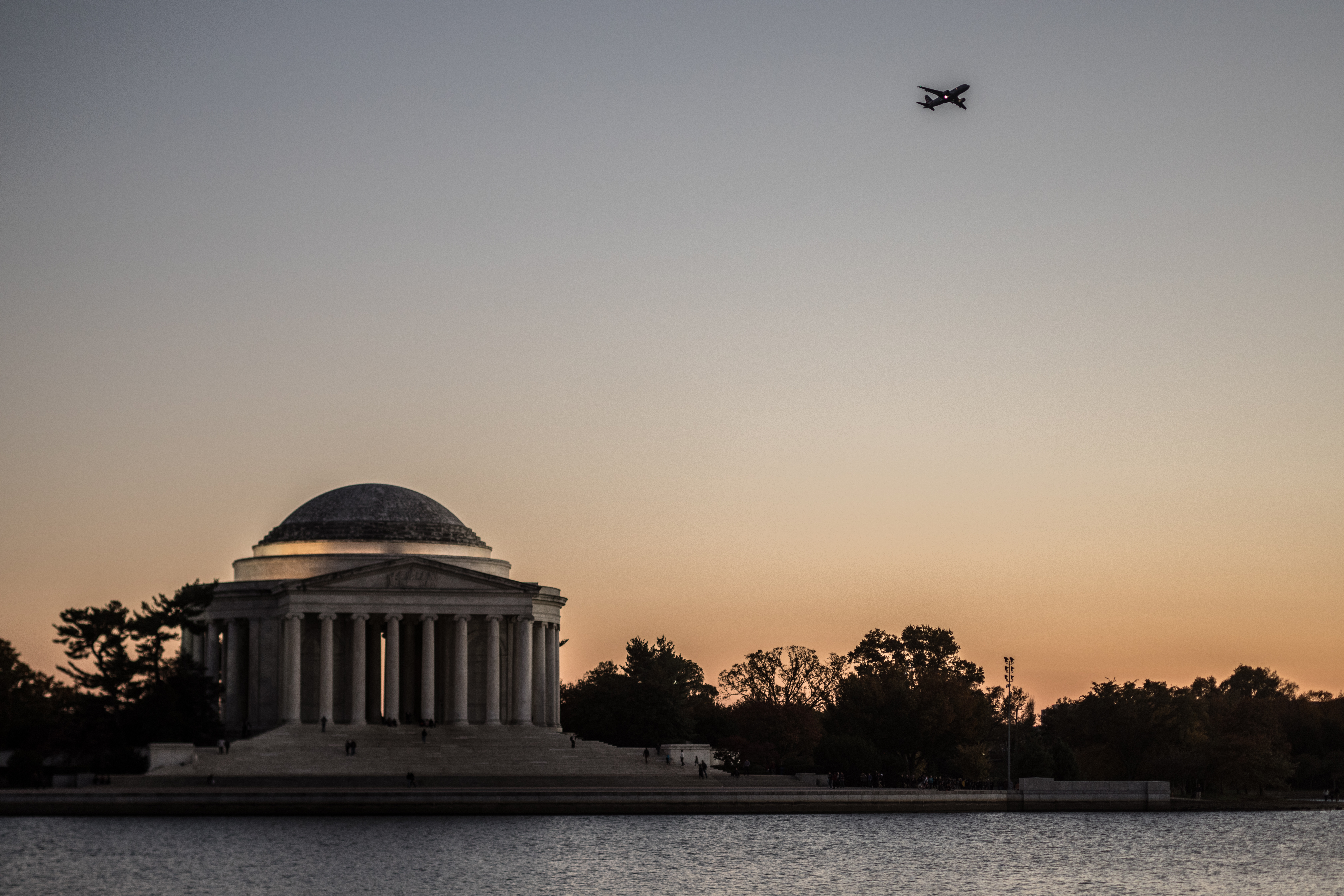
A Good Judge of D.C.
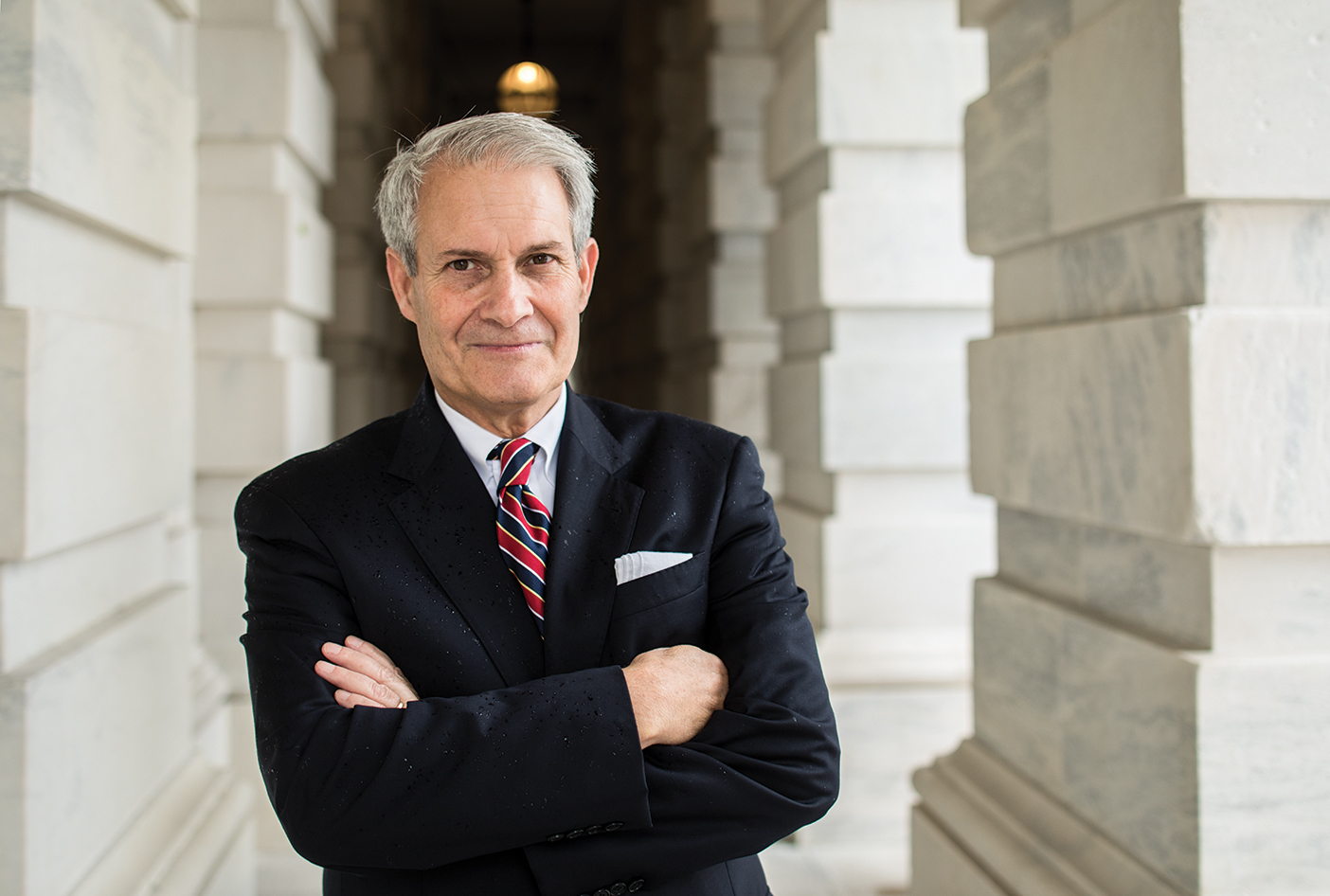
Thomas B. Griffith (BA ’78) graduated from BYU in humanities and earned a law degree from the University of Virginia, later becoming the U.S. Senate’s chief legal officer. After a period as BYU’s general counsel, he was appointed as a federal judge on the U.S. Court of Appeals for the D.C. Circuit.
D.C. Roots
“I’m about as Washingtonian as you can get. My roots in this area go back on my mother’s side of the family to the 1700s and on my father’s side to the 1830s. I grew up with the children of congressmen, senators, Supreme Court justices, and other government officials.
“I remember the March on Washington led by Dr. King. I remember my family going downtown to watch President Kennedy’s funeral procession. It was a very dramatic moment seeing Charles de Gaulle and other world leaders mournfully walking down Constitution Avenue with the slain president’s family.”
A Summer Job
“Mo Udall, a Democratic congressman from Arizona, was a neighbor, and he hired me to work in his Capitol Hill office two summers in high school. We’d drive into work together and discuss the great issues of the day: the war in Vietnam, the civil rights movement, and the need to protect the environment. He was a great mentor to me. I admired his dedication to public service, his integrity, and his wit.”
What Makes D.C. D.C.?
“The joke is that Washington is Hollywood for ugly people—there’s a lot of ambition here.
“Politics is the air you breathe. You can’t escape it. It’s all around you. I like that about D.C. When you’re in D.C., you expect to run into people who are doing interesting things. That’s part of the reason you are here—you want to be around people with a passion to change the world for the better.”
Eight Hours in D.C.?
“I’d start by going to the Lincoln Memorial, my favorite monument to our nation’s greatest president. Next, I’d go to the Capitol, which represents in a tangible fashion the idea upon which the republic is built, that ‘We, the people’ make the rules by which we govern ourselves.
“I would visit Arlington National Cemetery, where my father and mother are buried along with thousands of other members of the armed forces who gave their lives in service to our nation. Like Crosby, Stills, and Nash sang: There you ‘find the cost of freedom buried in the ground.’
“Finally, I would spend time at the National Cathedral, in many ways the spiritual center of the public life of Washington, D.C.”
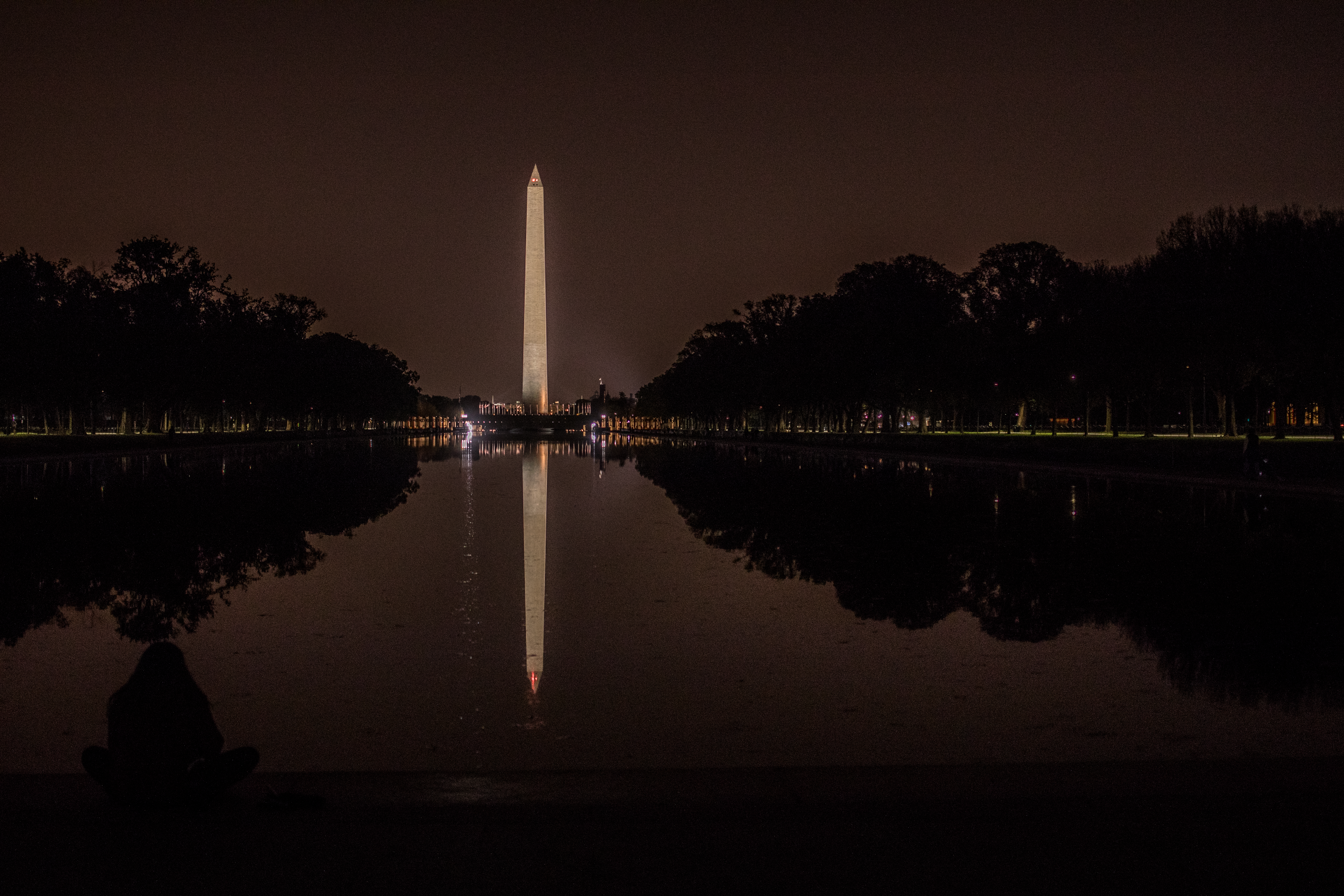
Driving Jobs
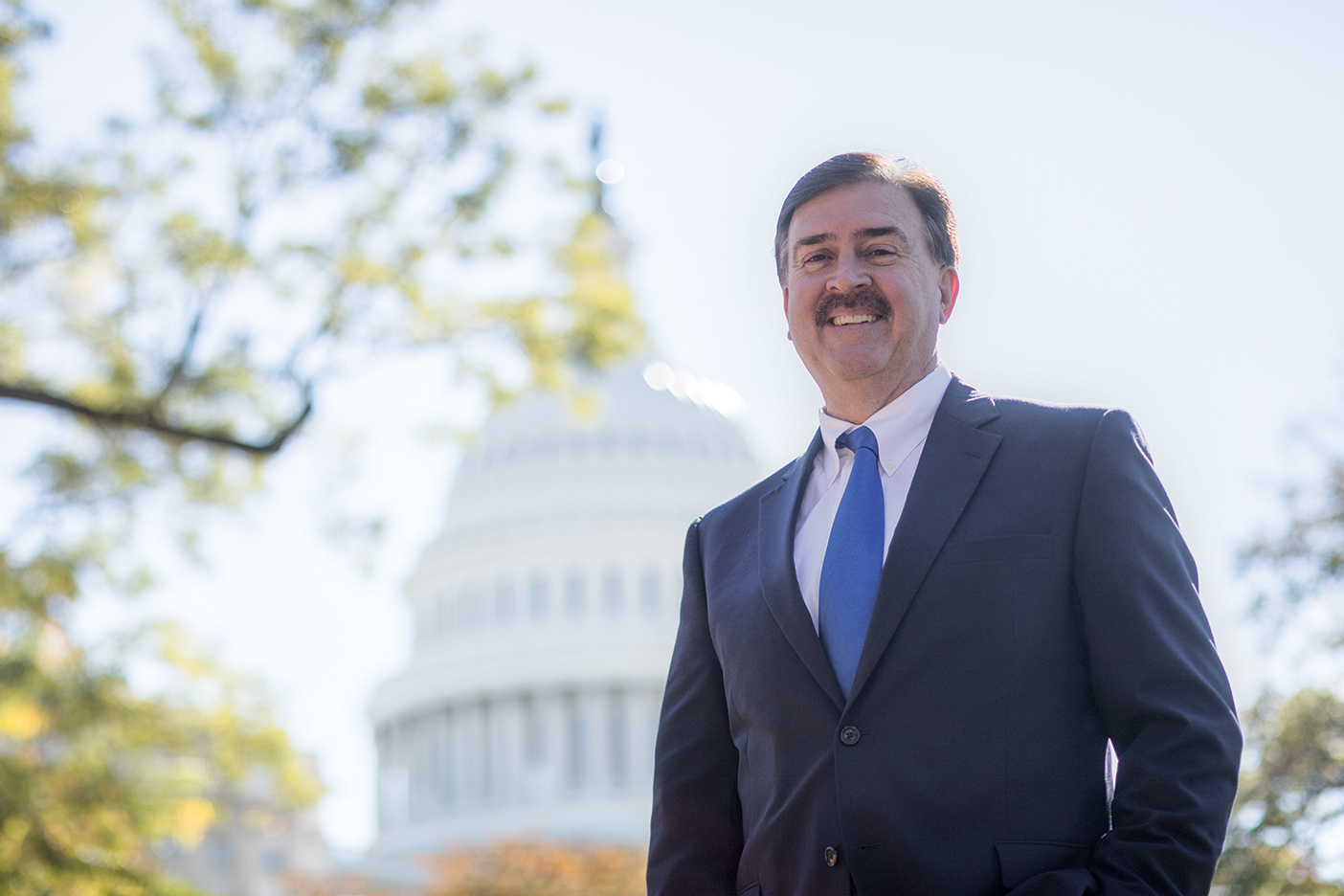
Curtis N. Magleby (BS ’83, MBA ’88) earned civil-engineering and MBA degrees at BYU, then worked for Ford in the United States, Mexico, and Asia in a variety of roles—from finance to manufacturing. He’s now in D.C. as Ford’s chief lobbyist.
The Vortex
“You get a little bit of what we call the ‘Beltway mentality,’ where all things revolve around D.C. as the center of the world. You get sucked into the vortex.”
Talking Politics
“Everybody’s to a degree knowledgeable about politics, and you can have conversations anywhere. You can have very aggressive conversations with your taxi driver.
“People are not cordoned off. Senators walk back and forth between their offices and the Hill. You run into senators and congressmen. You appreciate that the role of the government is the work of the people, and it’s still easy access.”
Take a Tour
“There are Segway tours, which are really a kick. If I had a free day, I’d ride a Segway and go around to some of the original buildings and monuments. There are little phrases built into the walls. . . . I would go around and collect all of those inspirational statements.”
It’s All There
“I spent a day in the Smithsonian archives with the American History Museum curator. If you want to look at the political buttons from 1932, there they are. If you want to see the robe of the first Supreme Court justice, there it is. The inkwell that Lincoln used when he penned the Emancipation Proclamation? It’s there.”
Cutting Though the Clatter
“The biggest challenge is so many competing voices on any issue. You have all of these interest groups advocating their positions with 535 elected officials. How do you cut through that noise? How do you keep people informed? How do you link your issues with broader concerns? How do you collaborate and find a meaningful solution to these complex problems? There’s really no issue that’s an up-down vote or a simple yes/no. In the background are a tremendous amount of competing forces.”
Intern Power
Washington, D.C., runs on intern power. And BYU, through its Washington Seminar program, has been supplying the nation’s capital with dozens of interns every semester for more than four decades.
Kay Atkinson King, a local Latter-day Saint who spent 26 years working in Congress, has observed hundreds of interns from universities around the country. She has high praise for BYU’s interns and says multiple offices and agencies request them. “They are smart and dependable but aren’t prima donnas,” she says. “You can trust them to get things done.”
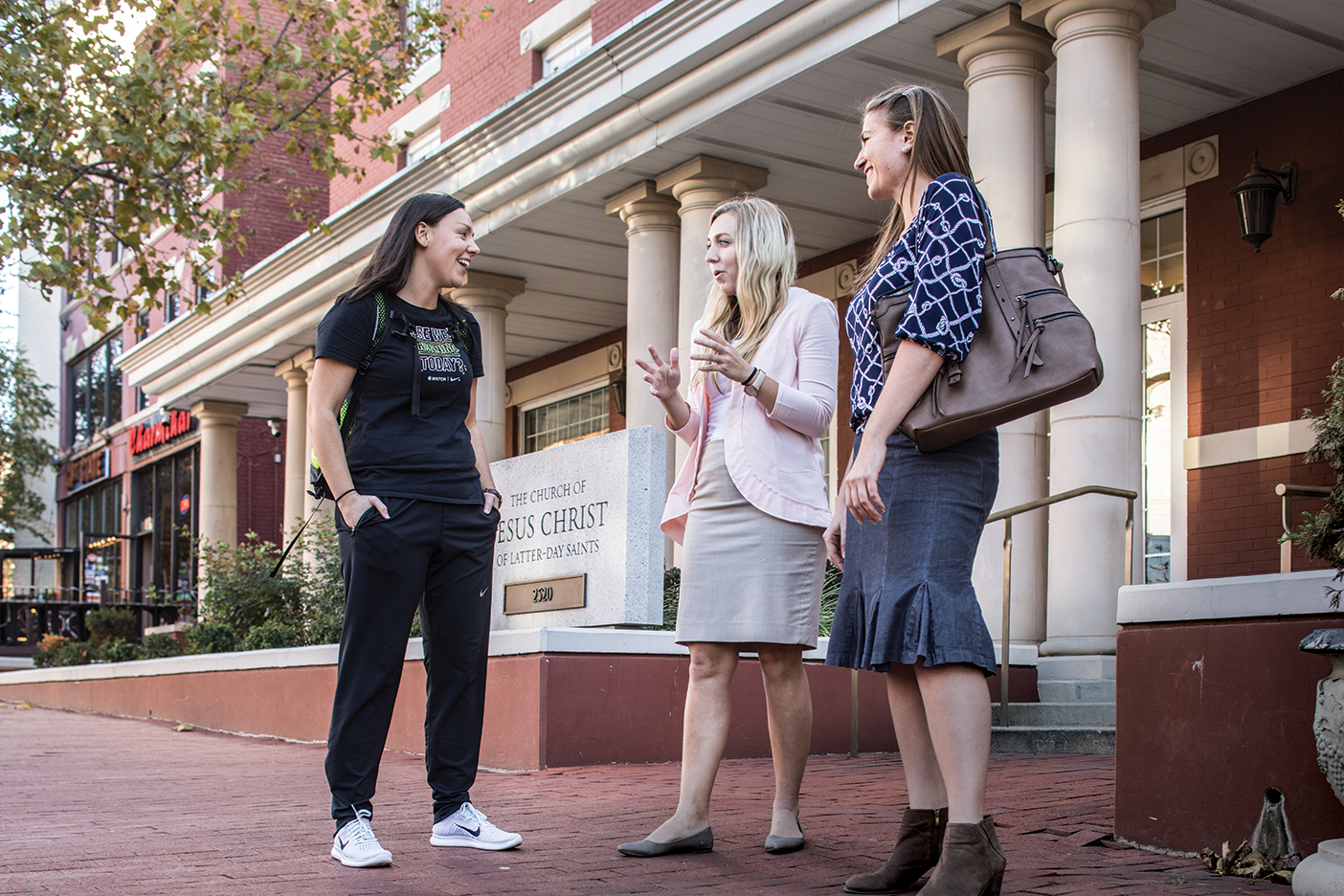
King tells of receiving an urgent call one day from W. Cole Durham Jr., founding director of the International Center for Law and Religion Studies at the BYU Law School. He told her of a bill to be voted on the next day by the Romanian parliament that would effectively stop missionary work there. She worked feverishly with a BYU intern to get some signatures from Senator Gordon H. Smith (BA ’76) of Oregon and Representative Tom Lantos of California and fax a request to vote down the bill to every member of Romania’s parliament. They succeeded. “That intern’s legwork made all the difference,” King says.
BYU’s Washington Seminar, a combined academic and internship program held in the Church’s Barlow Center in D.C.’s Foggy Bottom neighborhood, brings up to 120 interns to the capital each year to experience internships with such organizations as the American Heart Association, the Canadian Embassy, and the Smithsonian. J. Scott Dunaway (BA ’78) has led that program for some 35 years. “Easily 80–85 percent of our students’ future plans are shaped by this experience,” he says. “The students get the confidence that they can really function in a dynamic environment like Washington.” As a result, many students return to D.C. after they graduate, having been offered a job where they interned or found other work through the networks they’re tapped into.
Business strategy major Jackson T. Hughes (’17) is one such. Last summer he landed a prized internship doing data analysis at Bates White—a top economic consulting firm. “I got a lot of face time with partners in the firm,” he says. “They stuck me on a team and gave me real assignments on big cases that have been in the news. I forgot I was an intern.” Now Bates White has offered him a job, and he’s moving back to D.C. in August.
Feedback: Send comments on this article to magazine@byu.edu.


